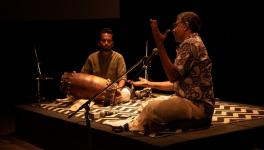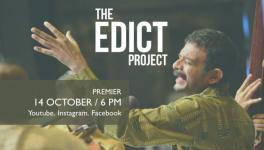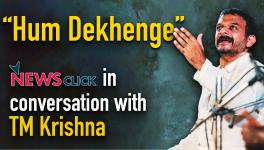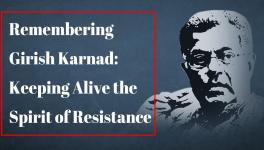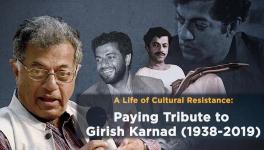The Song of Silence
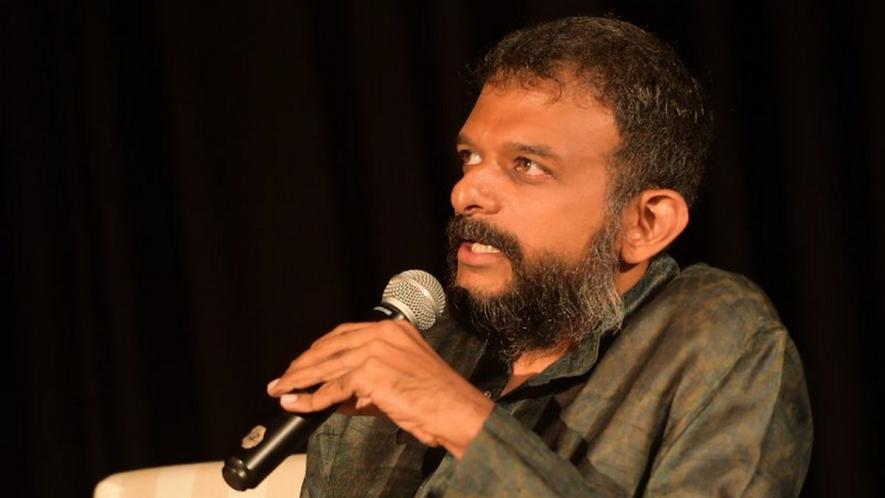
I have always admired SPIC-MACAY (Society for the Promotion of Indian Classical Music And Culture Amongst Youth), its memorable concerts and its founder, Kiran Seth, who embodies the best of the spirit of India. Seth teaches at IIT Delhi and yet finds the time to found and run an organisation that takes the best of classical music and dance to the people. It’s a service they have been performing for several decades.
One of my long-standing memories is of joining a SPIC MACAY group to Kalamandalam in Chirraturthi, Kerala where I saw Sonal Mansingh dance a full of Shakti (energy) ‘Shivatandav’, but the climatic moment was seeing Ammanur Madhav Chakayar perform Koodiyatam. It is also at a SPIC MACAY concert that I heard the legendary Kumar Gandharva – it was like being on the banks of the Ganga in another aeon. The moment is etched in my memory forever. However, Seth maintains that the organisation is not about teaching us of the arts but an attempt to humanise us. Much later, I heard legendary Carnatic singer T.M Krishna at a music concert. Before he started, Krishna gave an unusual introduction. He said, “I am not going to tell you whether I believe in god – that is personal to me. But the purpose of my music is, to get you to feel that god, whatever you believe he or she is.” I listened to him sing and in an indefinable way he touched my soul.
How far we have come from our shared humanity and joy in connecting with our roots was revealed, when I was jolted out of a morning raga – literally learning that the SPIC MACAY concert in Delhi of Krishna and three others had been postponed due to pressure. It seems the sponsors - the Airports Authority of India - had backed out after Right Wing trolls spewed vicious hatred, calling Krishna ‘anti-Indian’ because he sings songs praising ‘Jesus and Allah’. They also called him an ‘urban Naxal’, one of the latest but most dangerous pejoratives to be flung around.
I last met Krishna when he released Perumal Murugan’s book, The Goat Thief, in New Delhi. Murugan had finally emerged from his silence – he had been compelled to leave his hometown because some Right-Wing fascists felt he had betrayed the community by writing about a practice of women having sexual relations with a stranger on a ritual day in his novel, Half Woman. When I told him thatthe photos of the demonstrations showed there were no women protesting against this ‘disgrace’, he laughed and said, “You have researched well.”
Murugan writes, “I am fearful of writing about humans; even more fearful of writing about gods…. Yes, let me write about animals.” Then again, cows and pigs are forbidden, and so he says, let me write about goats. Murugan was open about the fact that he was lonely even among his three thousand students, but slowly the writing poured out of him like a trickle of water from an overfull jar.
Krishna, who was moderating the discussion, talked about the music present in his writing; Murugan turned around and thanked him, he said he was not aware of it. Krishna was keen to voice himself, to express every emotion, thought and idea not only in his music but through his words. He had obviously coalesced his musical abilities with his vision of free speech and given voice to Murugan’s exile.
Today, however, I ask, if T.M Krishna can’t sing and Perumal Murugan has to leave his home and live in self-imposed ‘exile’ , what is left of the kind of people we think we are and the kind we wish to be? What happens when we silence the writer and the musician who voiced the writer’s silence? The sound of silence is ringing in my ears.
(Sagari Chhabra is an award-winning author & film-maker.)
Get the latest reports & analysis with people's perspective on Protests, movements & deep analytical videos, discussions of the current affairs in your Telegram app. Subscribe to NewsClick's Telegram channel & get Real-Time updates on stories, as they get published on our website.









